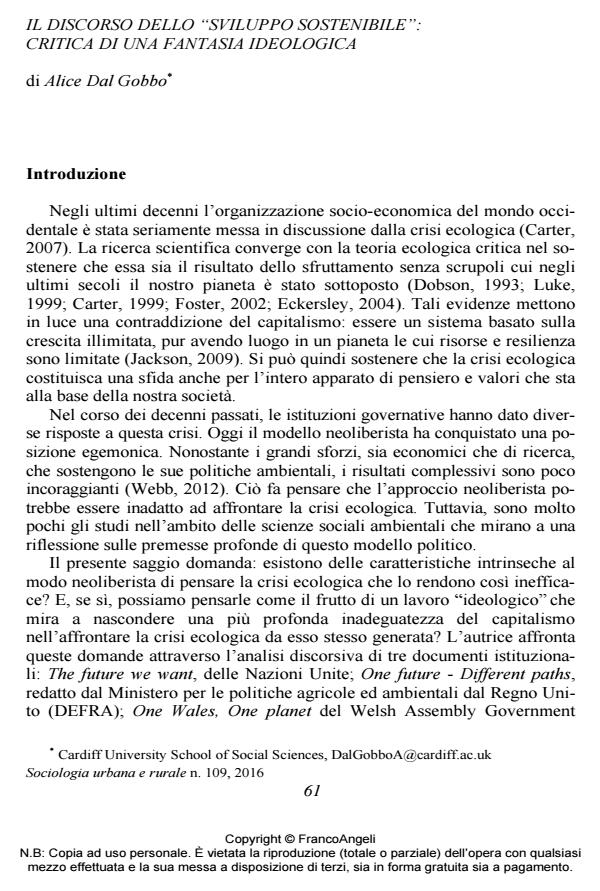The "Sustainable Development" Discourse: a Critique of an Ideological Fantasy
Journal title SOCIOLOGIA URBANA E RURALE
Author/s Alice Dal Gobbo
Publishing Year 2016 Issue 2016/109
Language Italian Pages 15 P. 61-75 File size 76 KB
DOI 10.3280/SUR2016-109005
DOI is like a bar code for intellectual property: to have more infomation
click here
Below, you can see the article first page
If you want to buy this article in PDF format, you can do it, following the instructions to buy download credits

FrancoAngeli is member of Publishers International Linking Association, Inc (PILA), a not-for-profit association which run the CrossRef service enabling links to and from online scholarly content.
The current ecologic crisis challenges Western economic, social and political organisation. Nowadays neoliberal policies have become hegemonic but do not seem to be able to implement successful measures. The author proposes the main arguments of a critical study carried out through Lacanian Discourse Analysis on three environmental policy documents. This highlighted the role of «sustainable development» as ideological fantasy: one that obscures systemic contradictions in order to perpetuate them.
Keywords: Ecologic Crisis, Environmental Policies, Criticism, Neoliberalism, Sustainable Development, Ideological Fantasy
- Economic Systems and Human Rights Margherita Ciervo, pp.211 (ISBN:978-3-031-72865-5)
Alice Dal Gobbo, Il discorso dello "sviluppo sostenibile": critica di una fantasia ideologica in "SOCIOLOGIA URBANA E RURALE" 109/2016, pp 61-75, DOI: 10.3280/SUR2016-109005